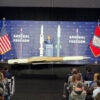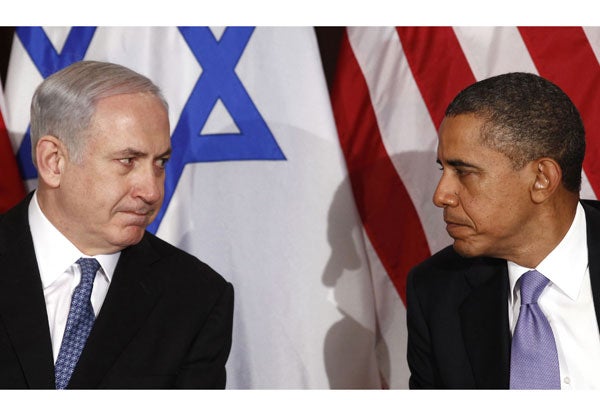Saudi Arabia and Israel, two key U.S. allies, have publicly challenged the Obama Administration’s Middle East policies this week and expressed alarm over the unraveling of America’s reputation as a dependable ally.
Both are understandably concerned that the Administration is succumbing to Iranian President Hassan Rouhani’s charm offensive and is on the verge of striking a dangerous deal that will let Tehran off the sanctions hook without ending its nuclear weapons program.
Both are also alarmed by the Administration’s controversial decision to cut aid to Egypt in a misconceived effort to compel Egypt’s new military government to make concessions to the Muslim Brotherhood leaders that it ousted after a disastrous year of authoritarian misrule.
Another source of concern has been President Obama’s vacillating course in the Syrian crisis. The President unwisely announced a red line against the use of chemical weapons without first consulting with advisers on how to enforce it, ignored his own red line, backed into arming the Syrian rebels in a feckless manner, threatened the use of force, and then meekly retreated after Russia seized the initiative with a diplomatic scheme to disarm Syria’s chemical arsenal and help the Bashar al-Assad regime survive.
Obama’s irresolute zigzags and naïve attempts to engage implacably hostile regimes in Iran and Syria have severely eroded international confidence in him as a leader and in the U.S. as an ally. In the words of Middle East scholar Fouad Ajami, Obama is perceived as “a lawyer lost in a region of thugs.”
Growing exasperation with American policy led Saudi Arabia to turn down a seat on the U.N. Security Council on October 17. The Saudi intelligence chief later said that this unprecedented act “is a message for the U.S., not the U.N.” and warned that it presaged a “major shift” in relations with the U.S.
The Saudis have signaled that they will seek closer cooperation with other powers to offset the perceived decline in American reliability. This could lead them to cultivate improved security ties to Russia, China, France, Britain, and/or Pakistan. Although the Saudis may find it impossible to find an adequate replacement for the U.S. security umbrella, they are clearly serious about sending a message. Their discontent also increases the risks that they will seek a nuclear capability as a hedge against Iran.
Israel is also troubled by the Obama Administration’s eager pursuit of better relations with Iran. On Wednesday, Secretary of State John Kerry got an earful of complaints from Israeli Prime Minister Benjamin Netanyahu at a meeting in Rome. Netanyahu made clear his dismay at the Administration’s soft approach toward Iran and warned against a “partial deal” on the nuclear issue.
By giving a higher priority to engaging Tehran than to assuring its allies that their interests will be protected, the Obama Administration has undermined American influence and its own reputation as a dependable ally. A government that rewards its enemies while neglecting its friends will soon find that it has more enemies and fewer friends.































